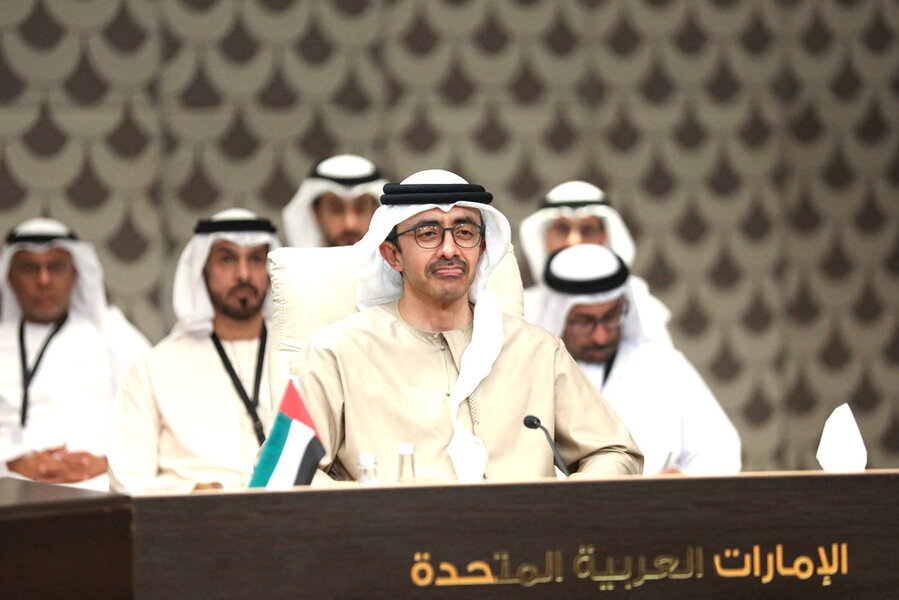Sprouts of peace amid shots of war
Loading...
As Israel escalates its counteroffensive against the Hamas military in Gaza, another intense effort has begun in the Middle East. It is one that favors a strategy of nonviolence and builds off rising sentiments against the futility of violence to resolve grievances or claim dominance.
Diplomats, for example, are shuttling between capitals to seek a consensus on a “humanitarian pause” in the Gaza fighting. The Palestinian Authority that rules the West Bank has reasserted its commitment to peaceful tactics as one reason for it to govern postwar Gaza. And in a bold statement Oct. 26, nine Arab countries rejected “attacks on civilians, all acts of violence and terrorism against civilians.”
Note the “all acts of violence.” In decades past, many of those states – Egypt, Jordan, the United Arab Emirates, Bahrain, Saudi Arabia, Oman, Qatar, Kuwait, and Morocco – might have supported an attack on Israel like the one by Hamas on Oct. 7, or even joined in. Not at this historic moment.
To be sure, Arab leaders face pressure from mass protests against Israel’s attacks on Hamas targets that have led to large civilian casualties. Yet tellingly, the protests have been largely nonviolent. Polls in the region by Arab Barometer over many years have shown a drop in acceptance of violence for political purposes. And while the Palestinian cause for a homeland remains popular in much of the Arab world, a Washington Institute poll in July found “attitudes toward the terrorist groups attempting to claim it are decidedly unpopular.”
“The peaceful nature of this wave of Arab mass mobilization reflects a growing trend to renounce violence as a means of pursuing political objectives and a desire for stability following the turbulent years following the 2011 Arab Spring,” writes Amr Hamzawy, a senior fellow and the director of the Carnegie Middle East Program in Washington and a former member of Egypt’s Parliament.
“Together, the mainstream Arab public space put forward pro-peace and pro-life values without any attempt to justify Hamas actions – neither with references to the ongoing occupation and siege of the Palestinian territories nor by evoking militant Islamist anti-Jewish rhetoric that has lost its popular appeal in recent years,” Mr. Hamzawy added.
This trend toward nonviolence in the Arab street, Mr. Hamzawy states, may be the “launchpad for a possible revival of the peace process between Israelis and Palestinians, with wide Arab backing for the first time.”
Just before the Oct. 7 attack, one Palestinian peace activist based in Jerusalem, Professor Mohammed Dajani Daoudi, told a crowd in New York City why he remains optimistic about nonviolent ways to bring Arabs and Israeli Jews together. He said he has learned to leave the past and the present to historians and deal with the future.
“We have inherited from our grandparents this conflict, and so it is our duty to plant seeds of love, seeds of peace, so that we can leave a different inheritance to our grandchildren,” he said.
As Israel seeks a military solution to the Hamas use of intentional violence against civilians, peaceful tactics are competing to resolve this recurring conflict.







